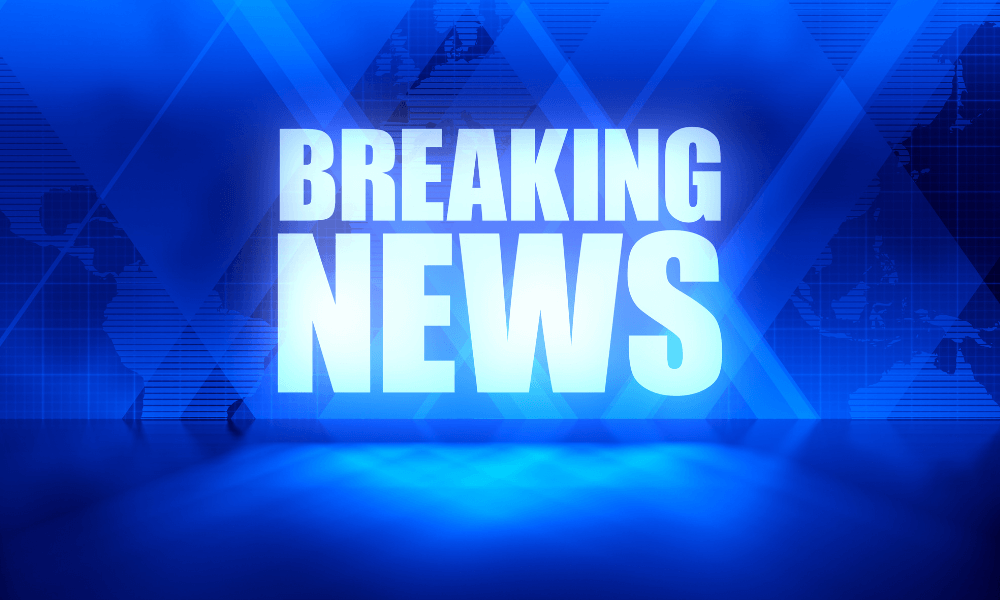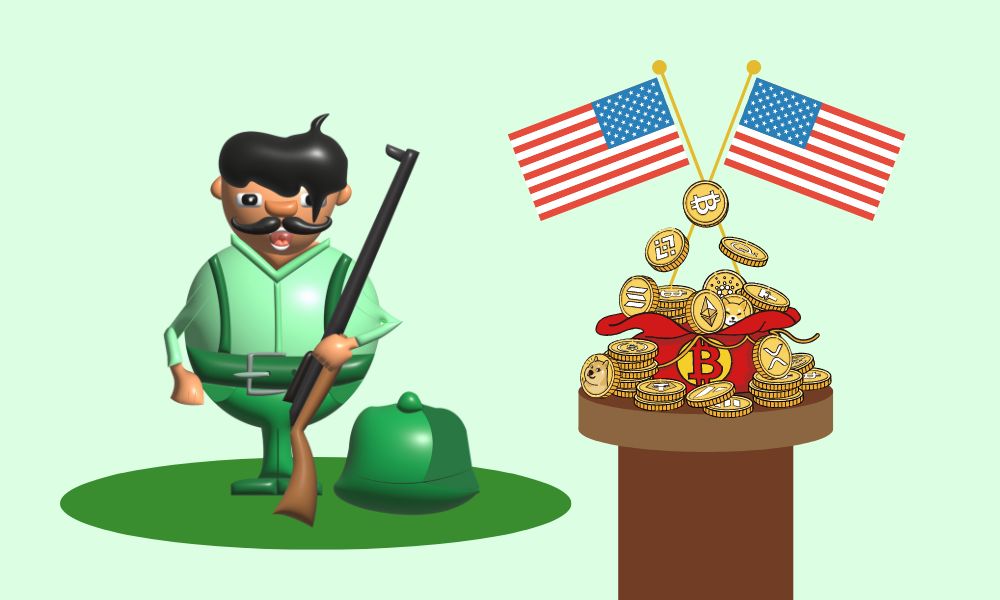Today's Top 5 Breaking News In The World
1st july 2022, Top 5 Breaking news occure in the world within 24 hour.
1.Supreme Court limits Biden's power to cut emissions
The US Environmental Protection Agency (EPA) has lost some of its power to reduce greenhouse gas emissions. The landmark ruling by the US Supreme It means President Biden is now relying on a change of policy from these states or a change from Congress otherwise the US is unlikely to achieve its climate targets.
Court represents a major setback to President Joe Biden's climate plans.He called it a "devastating decision" but said it would not undermine his effort to tackle the climate crisis. The case against the EPA was brought by West Virginia on behalf of 18 other mostly Republican-led states and some of the nation's largest coal companies.
They argued that the agency did not have the authority to limit emissions across whole states. These 19 states were worried their power sectors would be forced to move away from using coal, at a severe economic cost.In a 6-3 ruling, the court sided with the conservative states and fossil-fuel companies, agreeing that the
EPA did not have the authority to impose such sweeping measures.Attorney General Eric Schmitt for Missouri one of the 19 states called it a "big victory that pushes back on the Biden EPA's job-killing regulations".The court hasn't completely prevented the EPA from making these regulations in the future but says that
Congress would have to clearly say it authorises this power.And Congress has previously rejected the EPA's proposed carbon limiting programmes.Environmental groups will be deeply concerned by the outcome as historically the 19 states that brought the case have made little progress on reducing their emissions
which is necessary to limit climate change. The states made up 44% of the US emissions in 2018, and since 2000 have only achieved a 7% reduction in their emissions on average."Today's Supreme Court ruling undermines EPA's authority to protect people from climate pollution at a time when all evidence shows we must take action with great urgency,"
said Vickie Patton, general counsel for Environmental Defense Fund (EDF).It means President Biden is now relying on a change of policy from these states or a change from Congress otherwise the US is unlikely to achieve its climate targets.
This is a significant loss for the president who entered office on a pledge to ramp up US efforts on the environment and climate. On his first day in office he re-entered the country into the Paris Agreement, the first legally-binding universal agreement on climate change targets.
And he committed the country to reducing its greenhouse gas emissions by 52% by 2030 against 2005 levels. "While this decision risks damaging our nation's ability to keep our air clean and combat climate change, I will not relent in using my lawful authorities to protect public health and tackle the climate crisis," he said.
The outcome of this case will be noted by governments around the world, as it will affect global efforts to tackle climate change. The US accounts for nearly 14% of the world's greenhouse gas emissions.A United Nations spokesman called it "a setback in our fight against climate change"
but added that no single nation could derail the global effort. In the US, this ruling could also affect the EPA's broader existing and future regulatory responsibilities - including consumer protections, workplace safety and public health.The ruling gives "enormous power" to the courts to target other regulations they don't like,
Hajin Kim, assistant professor of law at University of Chicago,tells the BBC.This is because judges can say Congress did not explicitly authorise the agency to do that particular thing, she adds. - bbc
2. Hong Kong handover: What will the next 25 years hold?
In 1997 Hong Kong was handed back to China, triggering the start of a grand political experiment. Many were anxious about how the capitalist,free-wheeling former British colony would fare under Communist Chinese rule.So Beijing promised Hong Kong's civil liberties and freedom unavailable in the mainland
would be preserved for at least 50 years under a novel arrangement called"one country, two systems".Now, after a tumultuous 25 years, that experiment has reached its halfway point. What lies ahead over the next 25 years?
Changing politics
A major question is how much political autonomy and freedom Hong Kong will retain. Before the handover, many had hoped that China would eventually become more liberal and, in time,allow full democracy for Hong Kong as well.This is a promise enshrined in the city's Basic Law,
a mini constitution arising from an agreement between Britain and China. It stipulates progressive election reform so that the chief executive and all members of the legislature will eventually be elected through universal suffrage.
International or Chinese financial centre?
Lee believes many distinctive features of Hong Kong remain - and will likely stay the same beyond 2047. "I can't speak for the central government,but I think its main objective is to maintain Hong Kong's prosperity."But some critics think that Beijing has shattered this promise in recent years
with a restrictive national security law and electoral reforms which allow only "patriots" to run for Hong Kong's leadership.The 2020 law followed massive pro-democracy protests in 2019,which included violent clashes between demonstrators and police.Now, observers say, there is slim hope for a more democratic political system
|
👉 Keep Pushing Your Profitable Trading With 👈 |
and they fear that the character of the city has fundamentally changed, with Beijing in full control."Most Hong Kong people think that 'one country, two systems' has already disappeared," says Ted Hui, a former pro-democracy lawmaker who has fled the city.Authorities say the national security law affects a minority,
but Mr Hui says it stifles Hong Kong's once-vibrant civil society.In its wake, dozens of groups, including political parties and unions, have disbanded. The annual candlelight vigil commemorating the 1989 Tiananmen Square massacre and the 1 July handover anniversary march have been effectively banned by authorities.
Several pro-democracy media outlets, including Apple Daily and Stand News, have closed down in the past year. Hong Kong, once a beacon of press freedom in Asia, was ranked 148th in the world for press freedom this year, tumbling down nearly 70 places since the previous year.
And "the city of demonstrations" - which has a long history of peaceful protest - has fallen silent since the national security law took effect."It's fair to say that no large-scale, on-the-ground protests will occur in Hong Kong in the foreseeable future," said Jeffrey Ngo, a policy and research fellow of US-based Hong Kong Democracy Council.
"Beginning in 2020, you have people in Hong Kong who are either in jail and therefore can't do anything, or some who try to stay out of jail so they self-censor for good reason."Chinese officials have claimed the recent changes were necessary "improvements" to "one country, two systems", which they hailed as a "widely acknowledged success"
that could even continue past 2047. Dominic Lee, a pro-Beijing lawmaker, also argues that Hong Kong people still enjoy civil liberties. "People can express their opinion on different issues,
as long as it has nothing to do with national security," he said.
There will be more hearings and the court will decide what concerns national security." He also says Beijing passed the national security law and changed the electoral system as Hong Kong was "growing politicised" and it reached a "critical point" in 2019 when the city's legislature was paralysed by the pro-democracy camp.
"If you ask me, both the national security law and the electoral rule changes are the pro-democracy camp's own making," he said, adding that moderate voices had been "marginalised".Another question is whether Hong Kong can maintain its status as a leading international financial hub. In 1997, the "pearl of the Orient" was a wealthy city
whose GDP was equivalent to almost one-fifth of China's. Now it's only about 2%, and Hong Kong is facing intense competition from many other Chinese cities, especially Shanghai."Twenty-five years ago when
China was much less developed than it is now, Hong Kong stood out as a very developed,
says Louis Kuijs, chief Asia Pacific economist of S&P Global Ratings."Many cities have caught up with Hong Kong economically." Mr Kuijs says the city is still "the pre-eminent gateway in and out of China" as
it has an internationally recognised legal system and financial markets that are "very open to the rest of the world".internationally connected city,"
But recent tensions with Beijing and the strict zero Covid strategy have had many asking if the city is losing its appeal with international companies.The number of regional headquarters of international firms in Hong Kong dropped by nearly 10% from 2018 to 2021. But the number of mainland Chinese companies setting up shop in the city has gone up by nearly 28%.
"The face of Hong Kong is evolving and it's probably becoming a little bit less internationa and a bit more mainland-oriented," Mr Kuijs says.
Hongkonger or Chinese?
But one of the most pressing questions is what it means to be a Hongkonger. The diaspora is quickly growing with an increasing number of locals leaving the city in recent years.Hong Kong officials don't track emigration. But many of those who left permanently are likely to have moved to the UK, which received more than
123,000 applications for the BNO visa since its introduction in January 2021 until the end of March this year.About 70% of Hong Kong's population - 5.4 million - can apply for the visa, which allows holders the right to live and work in the UK.Political uncertainty has set off immigration waves in the city in the past such as when the Sino-British Joint Declaration was signed in 1984,
or after the Tiananmen Square massacre in Beijing in 1989.But Mr Ngo believes it's different this time. For those who left earlier, "the political threat was conceivable, but there was still a possibility that things could turn out not to be so bad"."Right now, the possibility is gone.
This time, people are leaving Hong Kong with the expectation that they probably will not return." Mr Ngo says the diaspora will likely hold on to their identity as Hongkongers, and the activists among them, are probably going to continue their struggle for democracy in Hong Kong and "building resistance from abroad".
But Mr Lee believes that the younger generation growing up in Hong Kong will become more patriotic."My kid would tell me about the flag-raising ceremony and sometimes would sing the [Chinese] national anthem spontaneously.""For this generation, they may not have the same feelings as those young people who took to the streets in 2019."
Some, like Mr Ngo, worry this comes at the cost of Hong Kong's unique identity."My biggest worry is that Hong Kong and China will no longer be meaningfully distinct from each other by 2047," he says. - bbc
3. Democratic congresswoman among more than 100 arrested at SCOTUS abortion rights protest
Democratic Rep. Judy Chu of California is arrested by Capitol Police with over a hundred people during a protest for abortion rights, June 30, 2022, in Washington.
Washington (CNN)Rep. Judy Chu of California was among the more than 100 people arrested at an abortion rights protest in Washington, DC, on Thursday, according to a statement from her office.
"When I first heard Roe was overturned, I immediately thought of who would be most harmed by this decision: a young girl who is a survivor of rape, a woman who cannot afford to travel to another state to access critical care, an expecting mother with an ectopic pregnancy whose life is in danger because she cannot have an abortion,"
the Democratic congresswoman said in a statement Thursday. "So, when I think of all these women -- and more -- the decision to join in a peaceful demonstration to make clear we will not allow the clock to be rolled back on abortion rights was easy."
Thursday's protest joins a number of demonstrations across the nation in recent days in the wake of the Supreme Court's reversal of Roe v. Wade. The ruling last week ended a person's federally protected right to an abortion, leaving the matter to the states.
Abortion rights protesters on Thursday marched to the US Supreme Court, holding signs, singing and chanting slogans, including: "We won't go back, we won't go back, our human rights are under attack." The group collectively sat down on the corner of Constitution Ave.
NE and First St. NE, just a few feet from the Supreme Court and US Capitol grounds in what organizers said was an act of civil disobedience. The protesters faced several verbal warnings from US Capitol Police officers telling them the gathering was illegal, before several of them were arrested.
"We arrested 181 people for Crowding, Obstructing or Incommoding (DC Code § 22--1307) for blocking the intersection of Constitution Avenue, NE and First Street, NE," the US Capitol Police tweeted.
President Joe Biden said earlier Thursday that he would support making an exception to the Senate filibuster the 60-vote threshold in the chamber needed to pass most legislation in order to codify abortion rights and the right to privacy through legislation passed by Congress, but the chances face an uphill battle.
Chu said that she is ramping up her calls to abolish the filibuster and pushing to pass the Women's Health Protection Act, which she sponsored and passed in the House of Representatives last year, but was blocked Senate Republicans in February with Democratic Sen.
Joe Manchin of West Virginia voting with Republicans in opposition. "Lives are at stake and this fight is far from over," the congresswoman said.- cnn
4. Erdogan says Sweden, Finland must fulfil NATO agreement promises
The Turkish leader says the deal is ‘a diplomatic victory’, but Sweden and Finland must first live up to their promises.Turkish President Recep Tayyip Erdogan has said Finland and Sweden must keep their promises made to Turkey in a deal to lift its veto on their NATO membership bids or ratification will not be sent to the Turkish parliament.
|
👉 Top THREE Award-Winning Brokers in 2022 👈 |
Speaking at a news conference in Madrid at the end of a NATO summit on Thursday, Erdogan said the two Nordic countries must complete legislative changes regarding “terrorists” as soon as possible.He also said Sweden had promised to extradite 73 individuals that he described as “terrorists” to Turkey as part of the agreement,
although the memorandum of understanding did not have any explicit pledges for specific extraditions.“The key thing is for promises to come true,” Erdogan said at the news conference. “In the coming period, we will monitor the enforcement of the elements in the memorandum and will take our steps accordingly,” he said.
“First Sweden and Finland should carry out their duties and those are in the text But if they don’t, of course it is out of the question for the ratification to be sent to our parliament,” he added.Erdogan described the NATO deal with the two Nordic countries as “a diplomatic victory”, and emphasised that Sweden and Finland must now live up to their promises,
including their pledge to fight “terrorism”.“We have strongly emphasised the message that we expect genuine solidarity from our allies, not only in words but also in action,” Erdogan said.Erdogan emerged from a meeting with Nordic leaders on Tuesday having secured a 10-point agreement under which the two countries pledged to join Turkey’s fight against banned armed groups.
According to the signed memorandum, Finland and Sweden pledged not to support Kurdish armed groups, the PKK and YPG, or the network of US-based Muslim scholar Fethullah Gulen, which Ankara says staged a 2016 coup attempt and which it labels a “terrorist” organisation with the acronym FETO.
Implementation of the 10-point agreement would decide whether he would forward their NATO application to the Turkish parliament for ratification, Erdogan said.Countries seeking to join the NATO alliance must have their membership applications approved by all member states, and ratified by the countries’ respective parliaments.
‘No losers in a just peace’
In the wake of Russia’s invasion of Ukraine, Sweden and Finland abandoned decades of military non-alignment and were formally invited into the NATO alliance at Wednesday’s summit in Madrid.Swedish Prime Minister Magdalena Andersson said on Wednesday that Stockholm would continue to follow local and international laws in its extraditions,
and that her country would not extradite Swedish citizens. Asked about the agreement with Turkey, Finnish leader Sauli Niinisto told reporters on Tuesday that his country had not been “presented any claims for now, as far as I know”.The Turkish president also called on Thursday for intensified “diplomatic initiatives” to end the war in Ukraine, adding that there were “no losers in a just peace”.
Erdogan said Turkey was trying to pursue “a balanced policy” because of its heavy reliance on Russian energy imports.Turkey has supplied Ukraine with armed drones and other weapons, but Erdogan also enjoys a close working relationship with Russian President Vladimir Putin.
“The support of our alliance to Ukraine is 100 percent and it’s complete. With that support we need to put forward a peace vision in order to stop the humanitarian crisis and the destruction once and for all,” he told reporters in Madrid. - aljazeera
5. State of emergency and sidelined Sánchez: Debunking Madrid NATO summit disinformation
The NATO Summit in Madrid has attracted a lot of international attention to its host country, Spain. But it has also become the focus of online misinformation.While some of the false claims may be spread to sow distrust and tensions within the alliance, others are simply photos or claims that have been taken out of context.
Some social media users have falsely claimed that Prime Minister Pedro Sánchez has been given a sideline role, although Spain is hosting the event.In this allegedly official photo from the summit, Sánchez is seen standing in the corner as well as in the back. However, this photo is misleading because it is not from the summit in Madrid.
Using a reverse image search, Euronews has found that this photo was taken at another NATO summit back in March 2022 in Brussels to discuss Russia's invasion of Ukraine.In the actual photo of the event held in Madrid, Sánchez is in the front row next to the Secretary-General of NATO,
Jens Stoltenberg. Another example of a false claim that has circulated on social media is that Spain has declared a state of emergency due to the NATO event.In addition, these posts state that a new National Security Law will prohibit any protests and even tap into private citizens' communications.
However, according to Spanish law, any state of emergency in the country must be approved by the Congress of Deputies.It must then be published immediately in the Official State Gazette and disseminated by all public media.There is indeed an amendment that is due to go before
the parliament of the current National Security Law from 2015, but the draft does not mention prohibiting all protests or tapping into all communications.Euronews has found no trace of an announcement of this supposed state of emergency in Spain.Concerning the new alleged National Security Law, it does not exist. - euronews
Hot Topics
Cardano's Vasil hard fork proposal submitted: Countdown commences
Surprise twist as BlockFi receives Money Services License in Iowa
Russian airstrike hits busy shopping mall in central Ukraine, sparking fears of mass casualties

.gif)















